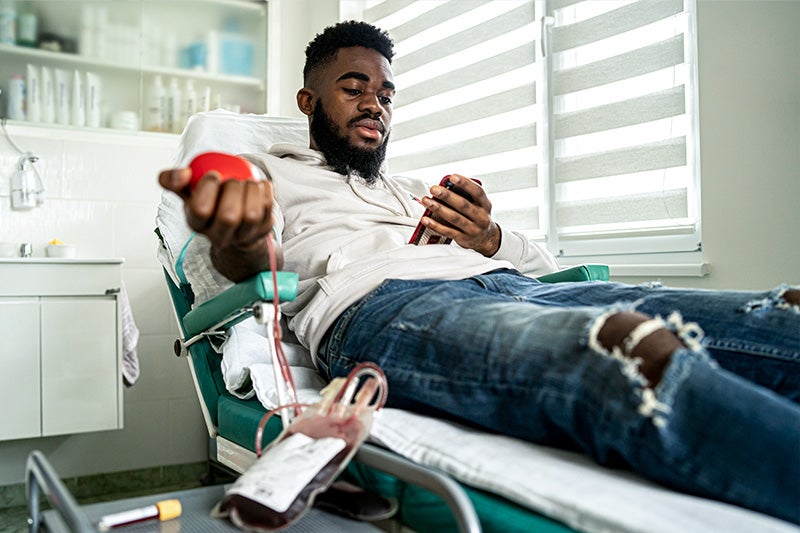Understanding Symptoms, Causes, and Treatment with St. Mary’s Health Care System
Anemia is a common blood disorder that occurs when your body does not have enough healthy red blood cells to carry adequate amounts of oxygen to your tissues. This can leave you feeling tired, weak, and short of breath. At St. Mary’s Health Care System, we’re here to help you understand anemia, its causes, symptoms, and how it can be treated.

What Causes Anemia?
Anemia can develop for several reasons, including:
- Iron Deficiency: The most common type of anemia occurs when your body lacks enough iron to produce hemoglobin, the protein in red blood cells that carries oxygen.
- Vitamin Deficiencies: A lack of vitamin B12 or folate can prevent your body from making enough red blood cells.
- Chronic Diseases: Conditions like kidney disease, cancer, or inflammatory disorders can interfere with red blood cell production.
- Blood Loss: Heavy menstrual periods, ulcers, or internal bleeding can cause anemia over time.
- Bone Marrow Disorders: Diseases affecting the bone marrow, such as leukemia or aplastic anemia, can impact blood cell production.
Symptoms of Anemia
Anemia symptoms can range from mild to severe and may include:
- Fatigue (feeling extremely tired or weak)
- Shortness of Breath (especially during activity)
- Dizziness or Lightheadedness
- Pale or Yellowish Skin
- Cold Hands and Feet
- Rapid or Irregular Heartbeat
- Headaches
- Brittle Nails or Hair Loss


How is Anemia Diagnosed?
If you experience symptoms of anemia, your doctor may recommend:
- Blood Tests: A complete blood count (CBC) can measure red blood cell levels.
- Iron, Vitamin B12, and Folate Tests: These check for nutrient deficiencies.
- Additional Testing: If needed, further tests can determine underlying conditions causing anemia.
How is Anemia Treated?
Treatment depends on the cause and severity of anemia. Common treatments include:
- Iron or Vitamin Supplements: Helps restore essential nutrients needed for red blood cell production.
- Dietary Changes: Eating iron-rich foods like spinach, red meat, beans, and fortified cereals.
- Medications: Some cases require medication to stimulate red blood cell production.
- Managing Underlying Conditions: Treating chronic diseases that contribute to anemia.
- Blood Transfusions: In severe cases, a transfusion may be necessary.


Where to Get Help for Anemia
At St. Mary’s Health Care System, our team of experienced healthcare providers is here to diagnose and manage anemia with compassionate care.
Primary Care Locations:
- Athens Internal Medicine Associates – Athens, GA
- Community Internal Medicine of Athens – Athens, GA
- Georgia Family Medicine – Watkinsville, GA
- Good Samaritan Primary Care – Greensboro, GA
- Sacred Heart Primary Care – Lavonia, GA
- St. Mary’s Family Medicine – Bogart, GA
- St. Mary’s Internal Medicine Associates – Athens, GA
- St. Mary’s Primary Care – Athens, GA
Take Control of Your Health
If you’re experiencing symptoms of anemia or have concerns about your health, schedule an appointment with one of our providers at St. Mary’s Medical Group locations across Northeast Georgia. Early detection and treatment can help you feel better and prevent complications. Let us help you on your journey to better health!



